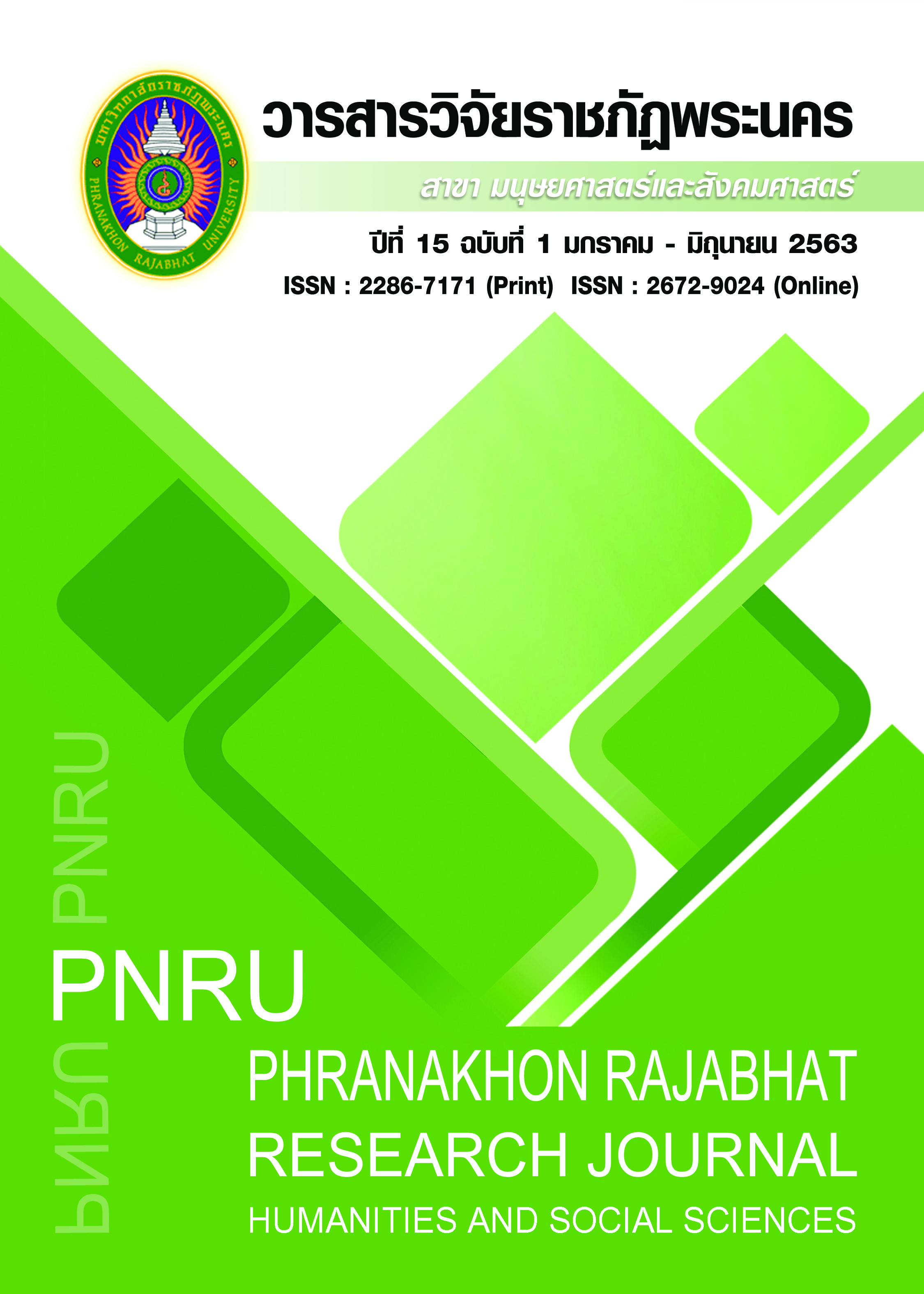PROBLEM IN PROTECTING HUMAN IDENTITY UNDER CONTEXT OF THAI LAW: A CASE STUDY ON COMMERCIAL EXPLOITATION
Main Article Content
Abstract
A human identity is widely exploited for a commercial benefit due to its economic value. A common way of such exploitation is use of the identity as representation of goods/services, commercial asset or trademark. Such commercial interest leads to unlawful exploitation of the identity. This may also result in a problem in application of law as, in the Thai legal system, there is only the tort law which is intended to compensate the owner of such identity on the basis of absolute rights recognized under the law, i.e. the rights to privacy and publicity under the Constitution, rights to names under the Civil and Commercial Code, rights to registered trademark and protection against passing off, or moral rights under the copyright law. Nonetheless, proving damage for the purpose of claiming compensation under the tort law is seriously problematic because the identity owner has the burden of proof to provide supporting reasons and evidence for enforcing its rights, which are disputed by an infringer. In other words, the tort law may alleviate the problem to only a certain extent where the damage is obvious. Therefore, application of the said law is not effective in handling the problem fairly. It can be said that the Thai laws on protection of the identity are rather insufficient for solving the problem of unlawful commercial exploitation.
Article Details
Each publish articles were copyright by Phranakorn Rajabhat University
Any contents which appeared in each articles in the journal were authors personal opinion. It did not relate to Phranakorn Rajabhat University and other instructors in the university. Each authors would take responsibility on their articles. If there are any mistake, the authors will take responsibility themselves
References
Chakrangkul, P. (2011). Copyright law: A comparative study between Thai and Australia. COJ comparative law Journal. 3(3), 96-120. (in Thai).
Chantara-opakorn, A. (1988). Fundamental principle of tort law. In 60th year’s celebration of Dr.Pridi Kasemsap articles book. Bangkok: Faculty of law, Thammasat University. (in Thai).
Hemarachata, C. (2012). Intellectual property laws (basic knowledge). Bangkok: Nititham. (in Thai).
Kamkwaun, P. (2006). Legal problems relating to taking business advantages from uniqueness of popular persons. LL.M. Program in Laws. Faculty of Laws, Dhurakij Pundit University. (in Thai).
Kuanpoth, J. (2012). International laws: Copyright Patent and Trademark. Bangkok: Nititham. (in Thai).
Matichon Online. (2020). Bella answers inquiry regarding the queen of brands presenter. Retrieved 3 January 2020, from https://www.matichon.co.th/entertainment/thai- entertainment/news_1322432 (in Thai).
Nimmer, M. (1954). The Right of Publicity. Law and Contemporary Problems.
Office of the Council of State. (1997). Acta Exteriora Indicant Interiora Secreta. Retrieved 15 April 2019, from http://web.krisdika.go.th/data/serve/tha/acknowledge/acknowledge_2/proverb-6.htm (in Thai).
Office of the Royal Society. (2007). Identity. Retrieved 24 April 2019, from http:// www.royin.go.th/knowledges=อัตลักษณ์-๑๖-มิถุนายน-๒๕ (in Thai)
Office of the Royal Society. (2007). Uniqueness. Retrieved 24 April 2019, from http://www.royin.go.th/ knowledges=เอกลักษณ์-๑๗-มิถุนายน-๒๕(in Thai)
Ono, S. (1999). Overview of Japanese Trademark Law. The Japanese Original.
Phongphunpunya, N. (2015). Legal reasoning underlying the necessity principle in the protection of life or health as an exception to international intellectual property law: a case study on tobacco plain packaging. LL.M. Program in International Laws. Faculty of Laws, Thammasat University. (in Thai)
Pinthasiri, C. (1983). A violation of personality rights. LL.M. Program in Laws. Faculty of Laws, Thammasat University. (in Thai)
Prokati, K. (2017). Principle of Law: Person. Bangkok: Winyuchon. (in Thai)
Punyapant, P. (2005). An introduction to tort law and presumption of guilt in Civil and Commercial Code. Bangkok: Nitibannakarn. (in Thai)
Rowley, F. (1998). Dynamic Copyright Law: Its Problems and a Possible Solution. Harvard Journal of Law and Technology. 11(2), 481-528.
Sakdamrongrat, R. (2014). FEATURE: “Brand”: original and legend “Presenter”. Retrieved 12 January 2019, from http://marketeer.co.th/archives/18783 (in Thai)
Suriya, N. (2006). Human rights: conception and protection. Bangkok: Faculty of law, Thammasat University. (in Thai)
Thairath Online. (2018). Court ruled “RS” to compensate “Pancake” for 1 million baht regarding channel 8 dispute. Retrieved 7 January 2019, from https://www.thairath.co.th/news/local/bangkok/1425541 (in Thai)
Thaweesang. W. (2018). Rights in Personal Identity: A comparative study of Thai, The United States of America and The United Kingdom Law. Nitiphat-Thammasat (Law and Sustainable Development Goals in Thailand). 3, 21-45. (in Thai)
Thongraweewong, T. (2012). Law of Mass Communication. Bangkok: Nititham. (in Thai)
Warren, S. & Brandeis, L. (1890). The Right to Privacy. Harvard Law Review. 4(5), 193-220.


